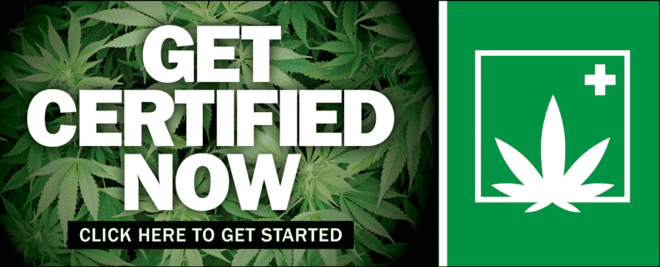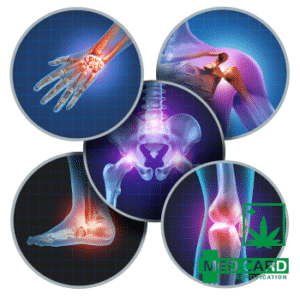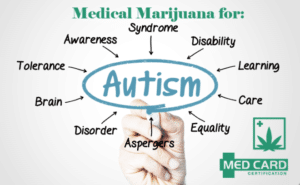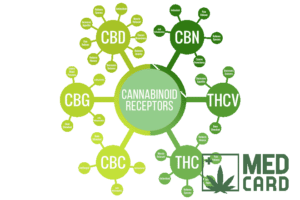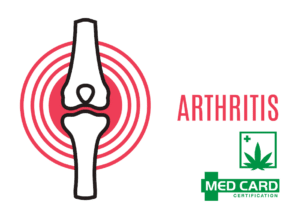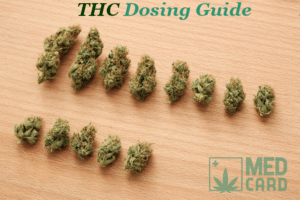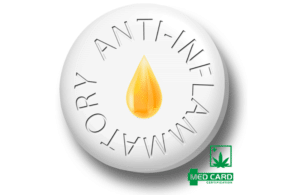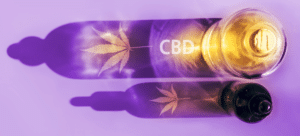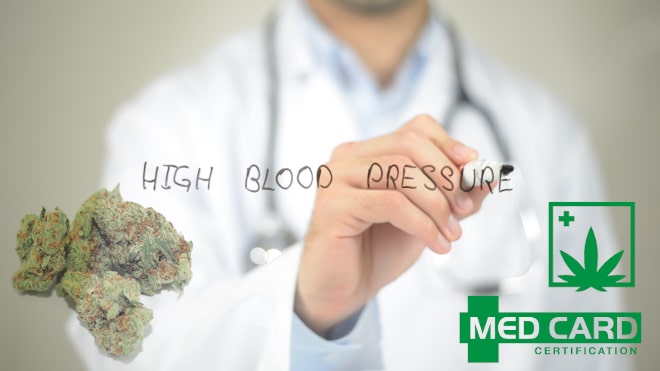
Can medical marijuana be used to control high blood pressure?
Can medical marijuana be used to control high blood pressure? The answer is, it depends on the MMJ product being used. While smoking marijuana that is high in THC might contribute to hypertension, there are some products and delivery methods that have been shown to help reduce blood pressure.
As more and more states legalize the use of medical marijuana, more and more patients are wondering if marijuana can help reduce high blood pressure. While some patients find that the active compounds in marijuana do, indeed, help, not all patients will benefit from every available product. There are several ways to consume marijuana and several delivery methods, each with its own pros and cons.
In this post we’ll take a look at some of the evidence for marijuana’s efficacy in treating high blood pressure and try to address some of the common points of confusion on this topic.
A bit about high blood pressure
The Center for Disease Control claims that heart disease and stroke are the two most prevalent causes of death in the U.S. Both of these conditions are linked to high blood pressure. And, sadly, 50 percent of adults in this country have high blood pressure — also known as hypertension.
There are a few options for lowering blood pressure. ACE-inhibitors and calcium channel blockers are effective at treating hypertension. However, many of these medications can produce unpleasant side-effects, including headaches, swollen ankles, dizziness, constipation, cold and flu-like symptoms, and rashes.
Fortunately for many, studies are showing that cannabinoids — chemically active compounds derived from the cannabis plant — are known to relax arteries and veins and may lower blood pressure in some patients.
How medical marijuana affects blood pressure
The term “marijuana” refers to the resinous flower clusters of the female cannabis plant. Specifically those that contain the intoxicating cannabinoid known as THC. Strains of cannabis that produce less than 0.03 percent THC fall under the category of “hemp.”
Both medical marijuana and hemp can contain other cannabinoids as well such as CBD, CBN, CBC, and CBG. Aside from affecting blood pressure directly, both CBD and THC are known to help reduce stress and depression which can, in turn, also lower blood pressure. Cannabinoids also posses powerful anti-inflammatory and anti-oxidative properties that can protect blood vessels from damage.
In spite of the many health benefits attributed to cannabinoids, studies have been limited and clinical trials with humans are rare. These limits were imposed, due to the complex history of cannabis and the hefty penalties inflicted for its possession and distribution. However, the few studies done up until this day strongly indicate that certain medical marijuana products can, indeed, help reduce blood pressure in some patients.
One double-blind, placebo-controlled study from 2017 specifically examined the possibility that CBD reduces blood pressure in human subjects. Nine healthy male volunteers took part in the study. Each participant was administered either a 600mg dose or a placebo. The results were impressive, as the volunteers who were given a fairly large dose of CBD (600mg) showed reduced resting systolic blood pressure before and after stress.
The outcome of cannabis therapy depends heavily on the strains of medical marijuana and the delivery method being used, as well as the formulation of the product. This is in addition to individual patient factors.
How to properly use medical marijuana to reduce blood pressure
It’s important to point out that patients with high blood pressure should not rush out and purchase mariuana for smoking. Smoking, in particular, is known to increase blood press and increase the risk of heart disease. However, dried cannabis flowers can also be used in cooking.
There are many other effective delivery methods that don’t involve smoking such as cannabis-infused edibles, oils and tinctures, and capsules.
Using medical marijuana tinctures to treat high-blood pressure
Cannabis tinctures are applied sublingually. A few drops placed under the tongue enables rapid absorption of cannabinoids into the bloodstream. Tinctures generally come in eye dropper bottles allowing the patient to deliver an accurate dosage.
Tinctures come in a wide array of formulations. There are cannabis extracts that contain the full spectrum of cannabinoids and other active compounds found in the plant. And there are also formulas that contain only purified cannabinoids in an oil or alcohol base. These purified cannabinoids might be the better choice for patients who don’t like the bitter flavor of cannabis extract.
Using cannabis oil capsules to treat high blood pressure
Cannabis oil capsules and pills are perfect for those who find the taste of tinctures unpalatable but want a full-spectrum product. However, pills will have a longer onset time as they must travel through the digestive system before they take effect.
Generally cannabis oils in capsule form take about 30 to 60 minutes to take effect. Cannabis capsules and pills also come in a variety of formulations.
Using cannabis-infused edibles to treat high blood pressure
Medical marijuana edibles come in multiple forms. Gummies, candy, brownies, honey sticks and chewing gum are a few options on the market.
In candy form, the onset time is similar to capsules since it melts quickly in the stomach. However, baked goods take longer to digest and their effects can take an hour or more to reach their peak.
Edibles are generally made using CBD and THC isolates so as not to affect the flavor, however, full-spectrum formulas are also available.
How much medical marijuana should be taken to treat high blood pressure?
It’s important to point out that each individual reacts differently to cannabinoids. Factors such as genetics, general health, and age differences also must be taken into account before beginning a medical marijuana treatment regimen.
Although it might require a substantial dosage to produce the desired effect in some individuals, first timers should start with just five or ten milligrams to see how they react, and then work their way up to an effective dosage.
Studies show that humans can consume large doses of CBD without any intoxicating effects. In a scientific review undertaken in 2011 the authors determined that up to 1,500 mg of CBD daily is well-tolerated in humans. This claim was later corroborated by a follow-up survey in 2017. Keep in mind, however, that high dosages may not be financially feasible for many individuals, as medical marijuana products can be quite expensive.
However, as little as five or ten milligrams of THC might cause undesirable levels of intoxication in some patients. THC can also increase anxiety and thereby cause an increase in blood pressure. For this reason, it’s best to work with cannabis strains and products that are low in THC and high in CBD.
While products containing THC must be purchased at a state-licensed medical marihuana dispensary, it’s easy to purchase CBD products online.
Finally, it’s important to remind those who suffer from high blood pressure that there is no substitute for regular exercise, consuming a plant-based diet, and reducing intake of salt, alcohol, and tobacco.

Sign Up for Medical Cannabis Today!
For potential patients, if you’re ready, we make it easy to connect with a medical marijuana doctor nearby or online. If you are interested in getting certified, please fill out the MMJ patient registration form below and press submit to get started. See if you qualify today!

MedCard Registration Form

Helpful Medical Marijuana Links:
Sources and additional reading:
- A single dose of cannabidiol reduces blood pressure in healthy volunteers in a randomized crossover study
- Cannabis Use and Blood Pressure Levels: United States National Health and Nutrition Examination Survey, 2005–2012
- Endocannabinoids acting at cannabinoid-1 receptors regulate cardiovascular function in hypertension


